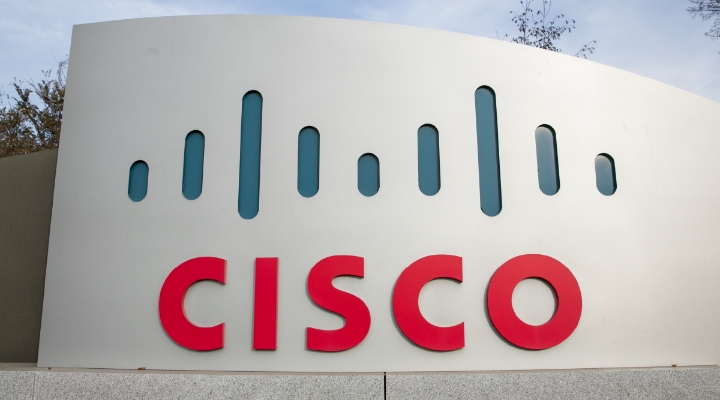Kate Lin: Welcome to Morningstar. Artificial Intelligence (AI) has been investors' favorite theme so far this year. On the back of a positive outlook for AI applications, Internet, software and semiconductor chip stocks all climbed higher for the year. But in more recent trading days, these stocks seem to have plateaued. But have they? Steve Wreford from Lazard Asset Management, who is managing Lazard Global Thematic Focus Fund, is joining us today. Steve, thank you so much for joining us.
AI in 2024
So AI has been the most popular theme among investors. Do you think it will continue this way and how is your multi-theme strategy playing this?
Steve Wreford: Well, certainly artificial intelligence has been the theme of 2023. The market has become obsessively focused on a relatively small number of names, and realistically in the short term, I do think that we are cresting the peak here of a short-term hype cycle.
Now longer term, there are great opportunities in AI, but in our view, investors need to think more clearly about where we go next. A broader range of applications of AI to many, many industries. And we have AI exposure across a number of the six themes in GT Focus. Everything from AI in the consumer world, where we're facing a future where every app on your phone will have AI embedded within it, through to areas like the industrial world where we think that AI is going to be very, very important in the factory. And also then of course on day-to-day applications such as those office productivity tools that we use every day in terms of software, and we're definitely seeing AI being embedded in there as well. So lots and lots of opportunities, but we may need to look beyond the obvious.
Lin: And with AI applications and even the broader technology space, the reality is that volatility may be looming, given the tighter financing situation and concerns about an economic recession that we are seeing, probably starting from Europe. What is your view?
Wreford: So I think that what you see there really is that I do agree with you that there's a chance here that AI and the broader stock market as a whole may be a little bit ahead of itself in the short term. I think probably we have a more positive view than consensus on the direction of the economy as we go through 2024. I think that that reflects the fact that we are probably more positive on both earnings and multiples. In other words, I think that the current recessionary fears are largely baked into stock prices already.
So in our view, looking forward from here, we're probably more positive on equities than the market. We just need to be a bit careful about which parts of the equity market we are exposed to.
How Can Industrial Be "Smart"?
Lin: Right. And let's talk about your portfolio. Another sector, other than technology or very growth-driven areas, you are heavily invested in industrials. So what themes do this part of the economy or sector fit into?
Wreford: So we have a theme called smart capex (capital expenditure), and that's based on two theories effectively that we hear from companies. The first of those is that we believe that for lots of reasons, capital expenditure by companies, capex, is going to be structurally higher over coming years. And that's because of areas such as deglobalization as we rebuild factories closer to home, areas like net zero and sustainability where we need to build new and more efficient factories, and automation as we see labor costs rise, companies need to find ways of making their employees more productive and automation is the way to do that.
So there's lots of reasons why capex is going to be higher, but also we need to think that capex is going to be smart. We think that we're going to be putting the latest technologies, including AI but also including a range of different, you know, robotics and so on into these factories. So a combination of these smart capex is I think a theme where industrials could do really, really well.
And just to add to that by the way, at the moment a number of industrial companies are facing near term pressure from, for example, a slowing Chinese market or destocking and removing inventories from the rest of the world. But these are just, I think, temporary slowdowns and it's an interesting opportunity to buy into a really good long-term theme at a moment of cyclical weakness.
What Secular Themes Are Appealing Other Than AI?
Lin: And lastly, for the benefit of our viewers, we want more themes from you apart from AI. So what are the themes are you following and that you think will stay relevant for 2024 and beyond?
Wreford: So our themes evolve slowly, over time and we source them from over 4000 company meetings every year. So we effectively find our ideas from talking to company management. And one of the things that we do see there is that there are still plenty of long-term themes emerging. We just need to make sure that we are focused on the right part of the market to benefit from that.
If I could give you an example, when we're looking at an area like electric vehicles, electric vehicles are still going to be a very, very strong part of the market for coming years. We think growth's going to be great, but a big question for us is who's going to win? Is it, will it be a Tesla or will it be one of the German manufacturers or will it be a Chinese manufacturer? You know, we don't know ultimately who's gonna win in terms of the end market. But what we do know is that many of those manufacturers use the same components, common components. So an easier way to play the theme of electric vehicles, instead of trying to pick the winners in the end market, is to choose the manufacturers of those common components.
We have a theme, Bits of chips is actually the name of the theme that's focused on the bits of the chip market, the bits of the component market that serve as a common underlying supplier. And I think that's the sort of theme that we're looking at. I mean very broadly, perhaps as a concluding comment, I would say that we observe that markets overall today are relatively cautiously positioned. There's a lot of people who think that cash at 5% is a good place to be, and I can understand that in the near term. But I do think that for longer-term investors here, this is a great entry point because ultimately wealth creation isn't done by having all of your wealth in cash even at 5%. We need to be further out there on the risk curve and ultimately buying into these long-term themes at a moment of cyclical weakness has generally been an extremely good idea for investors.
Lin: Wonderful. Thank you so much for your time, Steve. For Morningstar, I'm Kate Lin.







:quality(80)/cloudfront-us-east-1.images.arcpublishing.com/morningstar/54RIEB5NTVG73FNGCTH6TGQMWU.png)


:quality(80)/cloudfront-us-east-1.images.arcpublishing.com/morningstar/I53I52PGOBAHLOFRMZXFRK5HDA.jpg)

.png)



.jpg)





